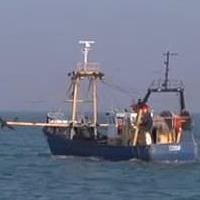(BRUSSELS) – The European Commission decided Monday to activate a new set of crisis measures to support the fishery and aquaculture sectors in the wake of the military aggression of Russia against Ukraine.
The crisis mechanism of the European Maritime, Fisheries and Aquaculture Fund (EMFAF) will bring immediate relief to operators of the fishery, aquaculture and seafood processing sectors through financial compensation for their economic losses and additional costs. It will enable EU Member States to grant financial compensation to operators for income foregone due to the current market disruption, as well as ‘storage aid’ to producer organisations. This step comes in addition to the Temporary Crisis Framework, which enables Member States to provide support through State aid.
Due to the impact of the military aggression of Russia against Ukraine, many EU fishers do not go at sea because it costs them more than staying in port. The whole EU fleet is becoming virtually unprofitable. Fishing vessels operating in the Black Sea are also facing the threat of possible military activities, therefore leading to a precautionary suspension of their activity. The aquaculture and processing sectors are also harmed by the increase of costs of energy and raw materials, as well as high logistics and transport costs. It is expected that the fish market will face a negative supply shock, both of fresh (EU) fishery products due to the decisions not to go at sea and of certain processed or preserved products as a consequence of the raw material shortages.
“The war in Ukraine is a war against all of us,” said Fisheries Commissioner Virginijus Sinkevicius: “Our fisheries, aquaculture and processing sectors are hit hard due to high energy, oxygen and raw material prices.
“These emergency crisis measures should not in any way impede our long-term efforts towards structural energy transition of the fishery and aquaculture sectors to achieve the objectives of the European Green Deal,” he added.
The high prices of energy and raw materials brought about by the the military aggression of Russia against Ukraine have generated very high additional operating costs and squeezed profit margins in the fishery, aquaculture and seafood processing sectors.
The mechanism activated by the EU allows Member States to grant two types of crisis measures:
- Financial compensation to operators of the fishery, aquaculture and processing sectors for their income foregone and additional costs stemming from the current market disruption. Additional energy costs can be covered by the compensation if they are linked to the market disruption caused by the military aggression of Russia against Ukraine.
- Financial compensation to producer organisations if they implement the storage mechanism of the common organisation of the markets (“storage aid”). That mechanism allows producer organisations to store the products of their members as a way to secure a satisfactory level of price on the market.
The EMFAF crisis mechanism is a temporary measure. It applies retroactively as of 24 February 2022, the date of the start of the aggression of Russia against Ukraine, and will last until the end of 2022. Member States can decide if they would like to use them or not. If they do so, they will have to include them in the next version of their EMFAF programme, submitted to the Commission.
The crisis mechanism to financially support the fishery and aquaculture sector - guide


